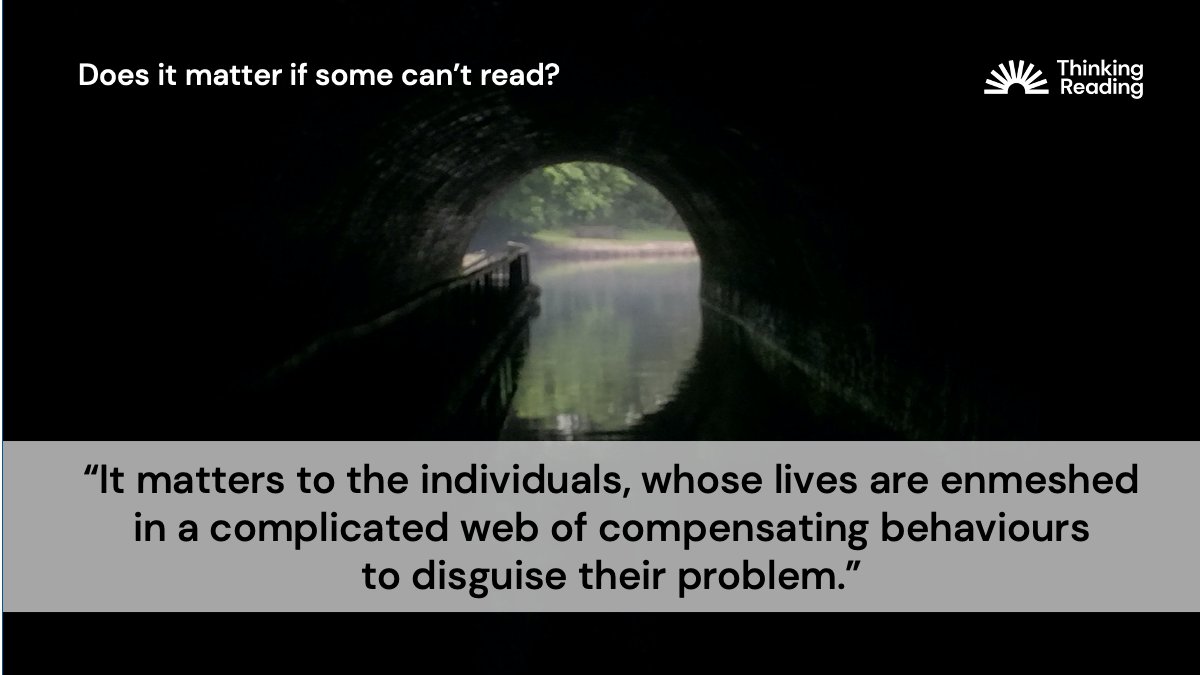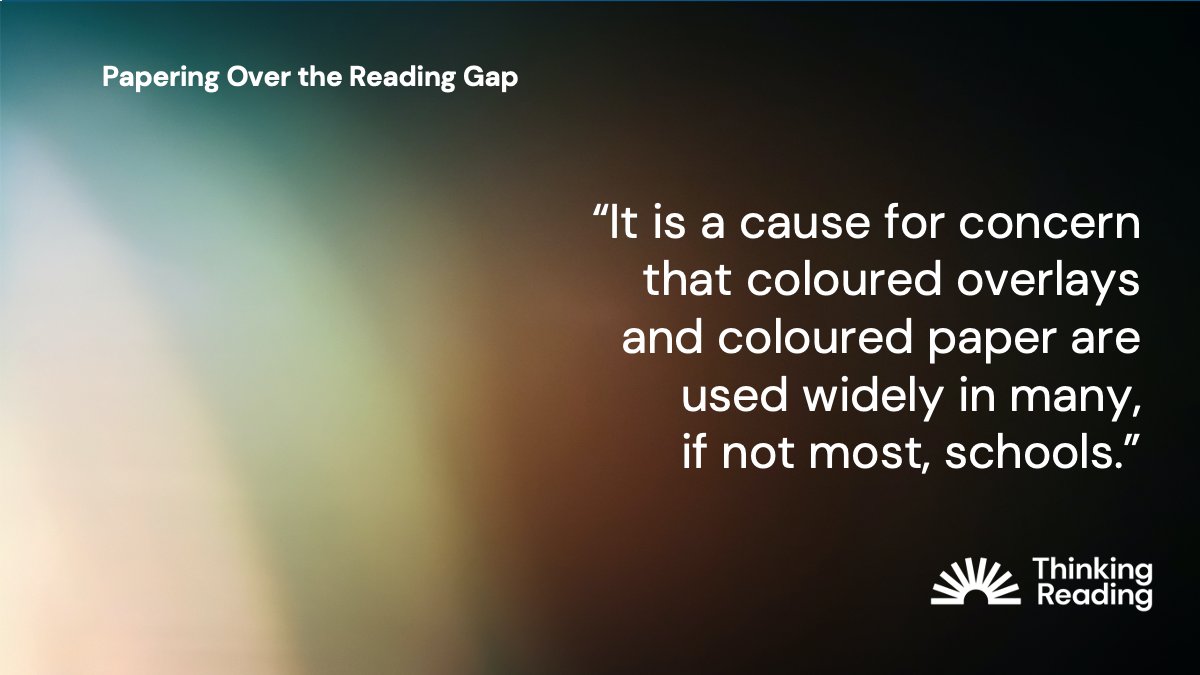1. Today's headline '175,000 11-year-olds starting secondary school are unable to read properly, Ofsted head warns'
Must we accept that a certain proportion of students will leave school illiterate to some degree? Does it matter if some can't read? 🧵
#EduTwitter #Literacy
Must we accept that a certain proportion of students will leave school illiterate to some degree? Does it matter if some can't read? 🧵
#EduTwitter #Literacy
2. If you can’t read, you can’t participate in social discourse as others do. You have to adapt - or just fake it. 

4. Society continues to pay lip service to solving illiteracy, all the while spending billions to maintain an underclass. 

5. Avoiding the systemic levels of literacy failure in education is costing the economy about the same amount as the schools’ budget in England, annually. 

7. Dealing with reading problems is much more fundamental than improving our place in the league tables. It is a moral responsibility. 

8. Good readers process text so automatically that it is easy to overlook the enormous effort required of struggling. 

9. Illiteracy costs the UK billions economically and socially, and far more in uncountable human misery. What price is too high to solve 

10. If a state-funded system of education is systematically producing illiterate students, then the system is complicit in creating an underclass. Everything else is excuses and window dressing. 

11/11 If we want to make a child stressed, anxious or angry, all we have to do is leave them struggling with their reading.
Our blog explains more: Does it matter if some can’t read? wp.me/p4hKgx-MI (4 min read)
#EduTwitter #Literacy
Our blog explains more: Does it matter if some can’t read? wp.me/p4hKgx-MI (4 min read)
#EduTwitter #Literacy

• • •
Missing some Tweet in this thread? You can try to
force a refresh







